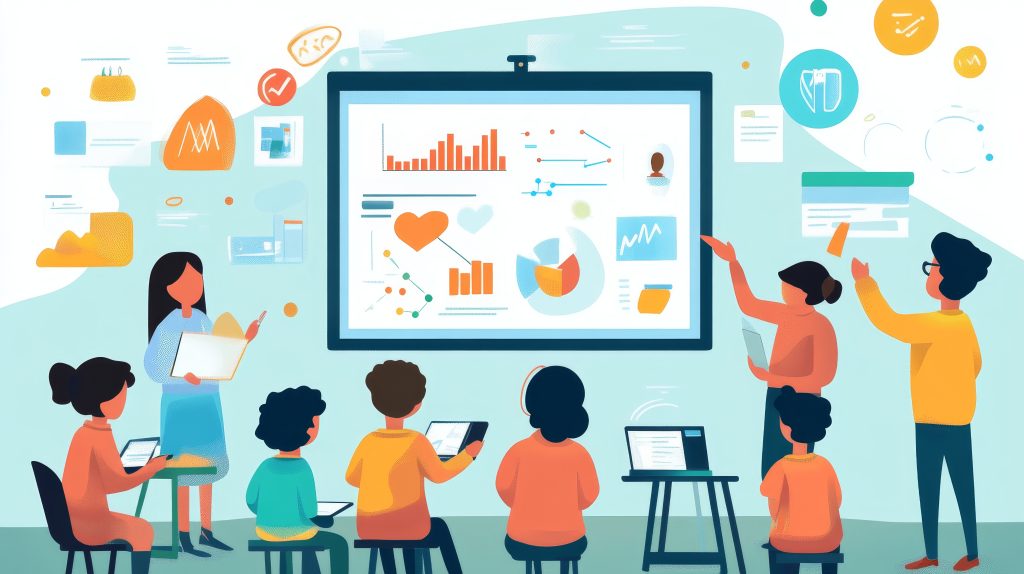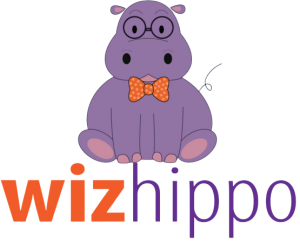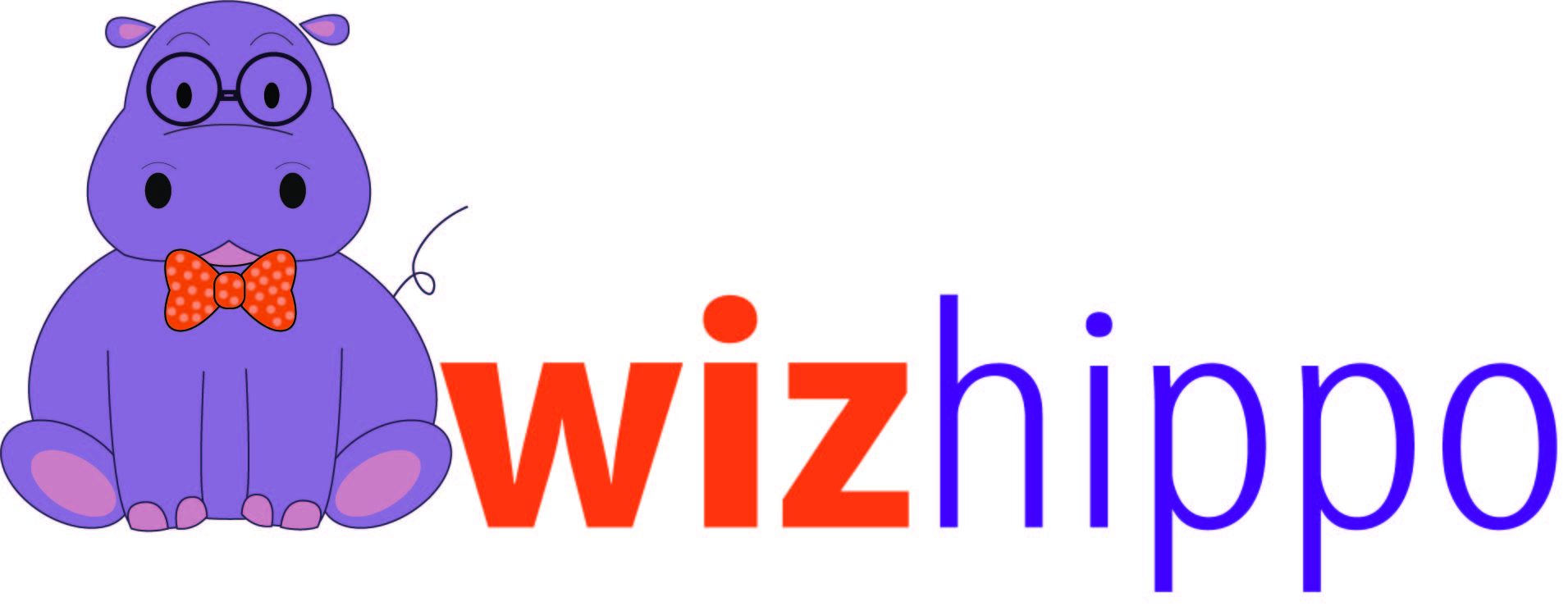
In today’s world, data is an invaluable tool that informs decision-making across nearly every industry, and early childhood education is no exception. In daycares, preschools, and other early learning environments, data-driven decision-making can significantly enhance learning outcomes and improve the overall quality of care. By tracking individual progress, monitoring behavior, and analyzing trends in a classroom setting, educators can make more informed decisions that cater to each child’s unique needs.
In this article, we will explore how data can improve learning outcomes in early childhood education and how daycare management software like WizHippo can provide the actionable insights necessary to make informed, data-driven decisions. From tracking developmental milestones to identifying areas of improvement, leveraging data can transform early childhood education, benefiting children, educators, and parents alike.
The Importance of Data-Driven Decision-Making in Early Childhood Education
Data-driven decision-making involves using data to guide and inform educational practices. For early childhood educators, data can provide valuable insights into a child’s cognitive, emotional, and social development, allowing teachers to tailor their teaching methods to each child’s needs.
Here are some key reasons why data is so important in early childhood education:
- Personalized Learning: Data allows teachers to understand how each child learns best. By tracking progress, educators can identify strengths, areas for growth, and any learning challenges, allowing for more personalized teaching strategies.
- Objective Progress Tracking: Rather than relying solely on anecdotal observations, data provides objective evidence of a child’s development. Teachers can monitor whether children are meeting milestones, adjusting their approach as necessary to ensure that every child is making progress.
- Early Identification of Issues: Data can help identify potential learning or behavioral challenges early on. Whether it’s delayed language development or difficulties with social interactions, data allows teachers to intervene sooner and provide targeted support.
- Informed Decision-Making: For administrators, data offers insights into classroom performance, teacher effectiveness, and the overall success of educational programs. This information can be used to make informed decisions about curriculum development, resource allocation, and staff training.
With the right tools, such as WizHippo’s daycare management software, schools can easily collect, analyze, and act on data, leading to more effective teaching and improved learning outcomes.
How Data Improves Early Learning Outcomes
1. Tracking Developmental Milestones
Children develop at different rates, and it’s important to track their progress across various developmental milestones. These milestones—such as language acquisition, fine motor skills, and social interactions—serve as benchmarks for assessing a child’s growth and identifying areas where additional support may be needed.
- Objective Measurement: Using data to track developmental milestones provides a clear, objective picture of a child’s progress. Teachers can measure whether a child is meeting age-appropriate milestones and make adjustments to their teaching strategies as necessary.
- Regular Assessments: Regular assessments allow educators to document a child’s progress over time. For example, tracking a child’s language development through monthly assessments can help identify trends and determine whether they are on track or need further intervention.
WizHippo’s platform allows educators to easily track and record developmental milestones, providing detailed reports that highlight each child’s progress. The software also enables teachers to set goals and track how children progress toward them over time.
2. Enhancing Personalized Learning Plans
Not all children learn the same way. Some may excel in certain areas while needing extra help in others. Data allows teachers to create personalized learning plans that cater to each child’s strengths, weaknesses, and learning style.
- Customized Learning Activities: Data helps teachers tailor learning activities to each child’s unique needs. For example, if a child excels in math but struggles with reading, a teacher can adjust the daily curriculum to provide more targeted reading practice while encouraging continued growth in math.
- Targeted Support for Individual Needs: By identifying specific areas where children may be falling behind, teachers can provide targeted interventions. For example, data might reveal that a child needs extra support with social interactions, prompting the teacher to integrate more group activities that foster communication and cooperation.
WizHippo enables educators to store and analyze data on each child’s learning preferences, strengths, and areas for improvement. With this information, teachers can develop personalized learning plans and track how effective these plans are over time.
3. Monitoring Behavior and Social Development
In early childhood education, social and emotional development is just as important as cognitive growth. Data can be used to track behavior and social interactions, helping teachers identify any challenges a child may face in areas such as communication, emotional regulation, or peer relationships.
- Behavioral Observations: By tracking behavioral data, teachers can identify patterns and trends in a child’s interactions with others. For example, if a child frequently struggles with sharing or experiences emotional outbursts, data can help teachers understand the context and provide appropriate interventions.
- Social Skill Development: Social data helps educators monitor how well children are developing essential social skills, such as cooperation, empathy, and communication. Teachers can use this information to create social learning activities that encourage positive peer interactions.
WizHippo offers behavioral tracking tools that allow teachers to log daily observations, track social interactions, and analyze patterns over time. This data provides a clearer picture of each child’s social development and helps teachers offer timely interventions when needed.
4. Using Data to Communicate with Parents
Effective parent-teacher communication is critical to a child’s success in early education. Data-driven insights can enhance communication between teachers and parents, ensuring that both parties are on the same page about the child’s development.
- Progress Reports: Regular progress reports provide parents with a detailed overview of their child’s growth in key areas. These reports can highlight academic achievements, social skills, and behavioral milestones, offering parents concrete evidence of their child’s development.
- Collaborative Goal Setting: Data can also be used to set collaborative goals with parents. For example, if a teacher identifies that a child is struggling with fine motor skills, they can share this information with the parents and suggest activities to practice at home.
WizHippo’s parent portal allows educators to share real-time updates and progress reports with parents. This transparency ensures that parents are actively involved in their child’s education and fosters a collaborative relationship between home and school.
5. Improving Classroom Management and Curriculum Design
Data doesn’t just benefit individual children—it can also provide valuable insights at the classroom or program level. Teachers and administrators can use data to monitor classroom performance, assess the effectiveness of different teaching strategies, and make informed decisions about curriculum design.
- Assessing Classroom Trends: Analyzing data at the classroom level can help teachers identify trends, such as which subjects children are excelling in or where they may need more support. This information allows educators to adjust their teaching methods to better meet the needs of the entire class.
- Evaluating Teaching Effectiveness: Data also allows administrators to assess the effectiveness of individual teachers and teaching methods. For example, if data reveals that children in a particular classroom are consistently meeting or exceeding developmental milestones, this could indicate that the teacher’s approach is highly effective.
- Curriculum Adjustments: By tracking how children respond to different curriculum components, schools can make data-driven decisions about which activities and lessons are most beneficial. If a specific learning module consistently produces strong outcomes, schools can allocate more time and resources to it.
WizHippo provides detailed analytics and reports that allow administrators to evaluate overall classroom performance, compare progress across different groups, and make data-driven decisions about curriculum and teaching practices.
How WizHippo Can Help You Leverage Data
WizHippo is a comprehensive daycare management software that offers robust data-tracking and reporting features. Here’s how WizHippo can help your daycare or preschool make data-driven decisions:
- Developmental Tracking: WizHippo allows teachers to track individual children’s progress across cognitive, social, and emotional milestones. This data can be easily accessed, analyzed, and shared with parents to keep them informed about their child’s development.
- Customizable Reports: Educators can generate detailed progress reports based on the data collected, highlighting key achievements, areas for improvement, and recommendations for continued growth.
- Behavioral Tracking: Teachers can log behavioral observations and monitor trends over time. This information provides valuable insights into social and emotional development, helping teachers offer targeted support when needed.
- Data Analytics for Administrators: WizHippo’s analytics tools allow administrators to assess classroom performance, identify trends, and evaluate the effectiveness of different teaching strategies. This data-driven approach ensures that the school is continuously improving and providing the best possible education.
By integrating WizHippo into your daycare or preschool, you’ll have all the tools you need to collect, analyze, and act on data—leading to more informed decisions and better learning outcomes for every child.
Conclusion
Data-driven decision-making is transforming early childhood education by providing valuable insights into each child’s development and helping educators tailor their teaching strategies to individual needs. Whether you’re tracking developmental milestones, monitoring behavior, or analyzing classroom trends, data can help improve learning outcomes and ensure that every child receives the support they need to succeed.
With WizHippo’s daycare management software, schools and educators can easily collect, analyze, and share data, making it simple to provide personalized, data-driven education for all children. Want to learn more about how WizHippo can help your school make data-driven decisions? Visit WizHippo today to discover how our platform can transform your approach to early education.

Stay Updated with the Latest in Daycare Management!
Subscribe to our newsletter to receive expert tips, industry news, and special offers straight to your inbox. Plus, get exclusive access to free resources and guides to help you streamline your childcare operations.
